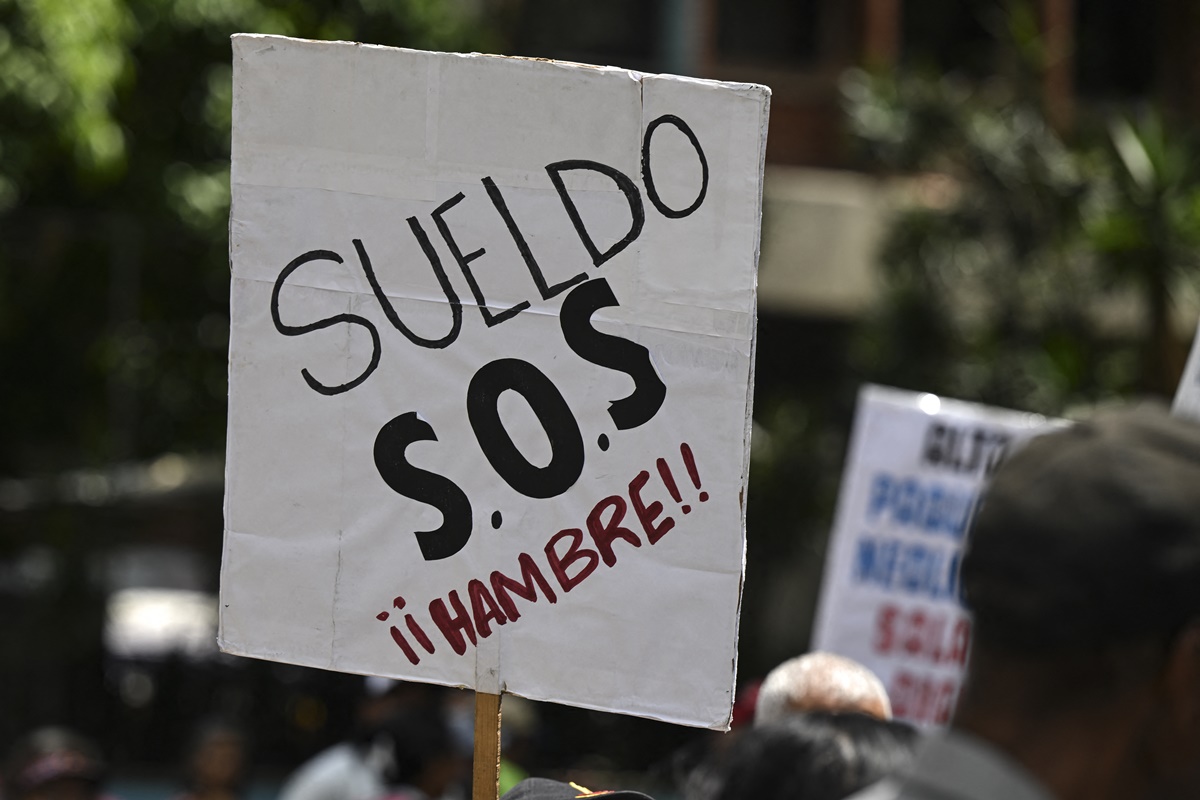Public education, in emergency due to the shortage of teachers

Public education in Venezuela is in emergency due, among other reasons, to the shortage of teachers, according to the union, a situation that the government is trying to resolve with programs including a call for retirees to rejoin and offers that seek to convince teachers who left. the classrooms on the ground floor wages.
According to estimates from the Andrés Bello Catholic University (UCAB), released by the Venezuelan Federation of Teachers (FVM), nearly 250,000 teachers are needed to cover the initial, primary and secondary education classrooms that were left without instructors in the last decade, when The country went through a deep economic crisis.
For this reason, President Nicolás Maduro promises aid to teachers and asks them, “for the love of the vocation,” to return to teaching the millions of children and adolescents who have been receiving an incomplete education for years, also affected by the lack of water. , food and electricity in schools and for the cost of transportation.
“Burlesque” offer
For the general secretary of the FVM, Leila Escobar, the Executive’s promises are a “burlesque” offer, especially the one referring to credits for teachers, since – remember – the salary of this group is less than 30 dollars per month. beyond them receiving another $130 in bonuses.
Then, he explained, any credit will completely consume his income when making the first payment, so that offer – he considers – will not convince teachers who are today “fixing hair, painting nails, making cakes, making arepas” to return to the classrooms. “, cleaning houses, taking care of the elderly” or in any task that generates better remuneration than teaching.
It highlights that the protagonists of the “educational fact” are the teachers and the students, so the programs must be focused on meeting the needs of both, as well as the schools, whose national total presents failures or deterioration of the infrastructure and lack of work materials.
Although on September 30, at the beginning of the school year, the government reported repairs in 8,000 educational institutions, the FVM emphasizes that there are more than 20,000 that were not attended to by the authorities and that present “the same deficiencies or worse.”
“If we see all these multifactors that are not taken care of, we cannot talk about educational quality,” he remarked.
Regarding the call to retirees, Escobar estimates that there are about 200,000 teachers in this condition, a number that would serve to meet the current demand “if there were a real salary policy” that would be profitable enough for them to return to the classrooms.
Emergency measures”
The resolutions announced by the Ministry of Education – a portfolio that is being restructured – are emergency measures, typical of the situation that the sector is experiencing, or that is how Carlos Calatrava, director of the UCAB School of Education, sees it.
The teacher recalls that the State must guarantee the mandatory levels of training for millions of children and adolescents, a task that is accomplished in pieces, since students are going from one school year to another without receiving classes on specific subjects, something that is noticeable especially in high school, where there is a shortage of teachers of exact and social sciences.
Regarding the government’s decision to return all public sector teachers who were performing other tasks to the classrooms, Calatrava believes that it is a correct action, taking into account the panorama, but insists that “it should not be the only measure nor should it be the star measure.
On the other hand, he clarifies, it is necessary “that once again the schools of education (in which universities train future teachers) are crowded with people” and not deserted as they have been in the last five years, according to the records of the UCAB and the FVM.
At UCAB alone, about 40 young people graduated as teachers in 2023. This number, which according to Calatrava represents 1% of the national total, suggests that, in the best of cases, Venezuela gained 4,000 new teachers last year, a pace that would take 60 years in filling existing vacancies.
Independent journalism needs the support of its readers to continue and ensure that the uncomfortable news they don’t want you to read remains within your reach. Today, with your support, we will continue working hard for censorship-free journalism!
